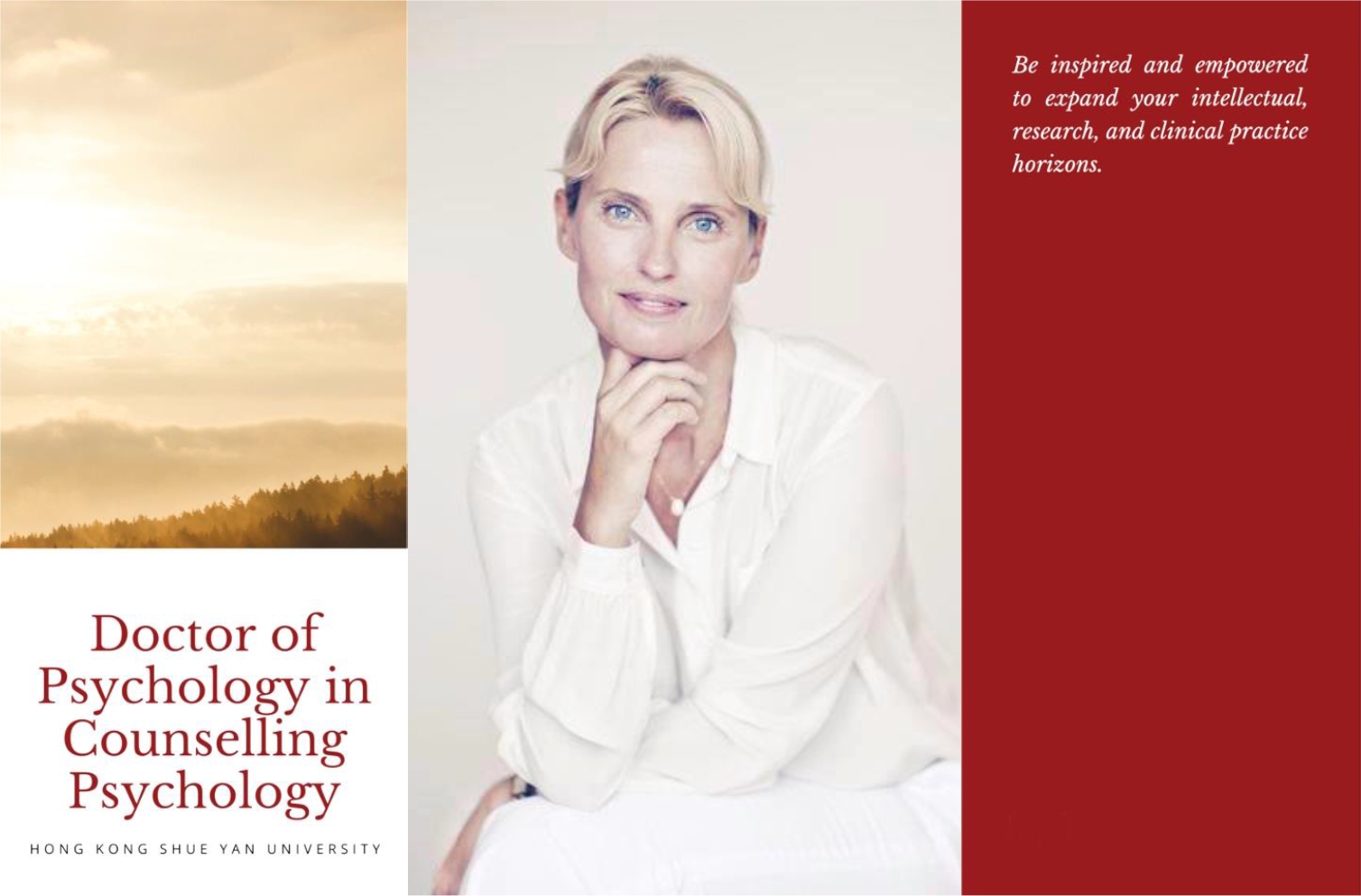Ms. Claire Bernadette YOUNG, a graduate of the Doctor of Psychology in Counselling Psychology programme, missed the graduation ceremony because she needed to go back to the United Kingdom.
The subject of her research was transnational elder caregiving. She described this is a subject close to her heart as she has personally been engaged in the complex process of caring for elderly parents from overseas.
“Although it’s a growing global phenomena, and especially relevant in the landscape of the pandemic, it’s a largely hidden and under-researched area. I wanted to examine the impact that distance caregiving has on couples in Hong Kong by means of a qualitative design (reflexive thematic analysis). The research revealed that individuals experience ‘in-absentia caregiver stress,’ and that couples engage in various dyadic coping strategies to weather the storm together. The research proposed an integrated stress-coping model, and provided a number of implications for counselling psychologists who work within multi-cultural contexts,” YOUNG said in a written interview.
Most important lesson
When asked what is was the most important lesson she learned from her study, she said she has learned to slow down and become far more intentional with everything that she do. “Self-reflection is a huge part of becoming a counselling psychologist, and once you learn to truly engage in that reflective process, it becomes part of your DNA and is hard to switch off. Reflection gives space for intentionality, and I am now far more aware of myself, actions and motivations.”
She said she has also learned to go with the flow a bit more and trust in processes. For example conducting research was not something that could be easily ticked off a “to do list,” but rather a full immersion with a process which had many peaks and troughs. “I needed to let go of the end goal and fully engage and trust in that process, however hard that was.”
“And finally,” said Young, “I learned that experiencing is the key to true learning and self-reflection. Once you have truly introjected an experience it becomes an ‘a ha!’ moment and can’t be unlearned. I see this with my clients, when they experience a moment of clarity and understanding, it’s like they breathe a big sigh of true understanding. I’ve had many ‘a ha’ moments along this PsyD journey which felt transformative.”
Talking about the benefits of the programme, she said the enormity of the benefits of the programme will take a while to sink in. “I think that a post-doctoral process is another learning curve and experiential process. It’s a period of reflection about what your possibilities can be and how you are going to chart your road map. Taking time to work that out is important. So I’m engaging in my most important lesson and am taking this process slowly.”
Memorable experiences
When ask about the most memorable experiences in Shue Yan, YOUNG said: “I was a Shue Yan ‘outsider’ to begin with, and joining in these classes made me feel more part of university life. However the main memorable experience has to be the relationship I have developed with the teaching faculty along the way. The depth and breadth of expertise, dedication and professionalism I experienced from each and every one of the staff members is something I shall never forget. I feel enormously privileged to have been under their guidance and know that these relationships will remain with me for life.”
“Finally I have to say the most memorable ‘moment’ of the journey was my viva: I have never over-prepared for anything so much in my life, but I need not have worried so much as the experience was actually very enjoyable! Being congratulated at the end by Dr. Alex LI with the words “Congratulations Dr. Young” was something I’ll never forget,” YOUNG said.
Source: Nov and Dec 2021 Combined Issue
